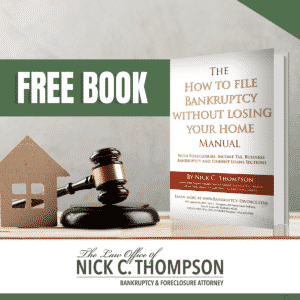We’ve all heard about colleges encouraging students to go into debt for degrees that fail to equip students to repay the debt. Government loans balloon the default, which taxpayers ultimately repay. But, you can be sure the servicers find such penalties highly profitable. The default charges include a 25% penalty when the lender first declares the loan in default. The servicer earns about 40% of any default charges they collect. Your payments are typically applied to these charges first and principle last. This is very much like a credit card over the limit fees.
Amazingly, the 2022 student loan debt is about a staggering $1.8 trillion in government and private loans. The government loans are about 92% of this, and the debt increases about 10% per year. To further illustrate this, the statistics below show the number of student loans that are in default. As you can see, if you default on your student loan, you are not alone.
It’s also better to start sooner than later when it comes to bankruptcy. So, continue to do your research, and please, use the resources on this site. But do not procrastinate when you need to take action. Instead, please pick up the phone and call me today at 502-625-0905.
 Student Loan Default Rates
Student Loan Default Rates
2020 Student Loan Debt Facts
In 2020 the Student loan debt in the United States totaled $1.71 trillion and grew six times faster than the nation’s economy.
- 44.7 million student borrowers are in debt by an average of $37,691.
- The 42.9 million Americans with federal student debt each owe an average of $36,510 for their federal loans.
- More than 35 million of these borrowers may qualify for student debt relief under the CARES Act of 2020.
- 2.4 million borrowers owe an average of $57,083 each in private loans.
- The average public university student borrows $30,030 to attain a bachelor’s degree.
- As part of the pandemic relief, defaults were stopped.
- However, before the pandemic, 11.1% of student loans were 90 days or more delinquent or were in default.
- Also, as part of the pandemic, monthly student loan payments were stopped. However, before the pandemic, the average payment was $300.
2020 Student Loan Statistics
- Total Student Loan Debt: $1.71 trillion among 44.7 million borrowers
- Student Loan Delinquency Or Default Rate: 10.8% (90+ days delinquent)
- Direct Loans – Cumulative In Default: $119.8 billion (5.5 million borrowers)
- Direct Loan In Forbearance: $122.9 billion (2.8 million borrowers)
- Total U.S. Borrowers With Student Loan Debt: 44.7 million
- Average Student Loan Debt: $32,731
- Average Student Loan Payment: $393
- Median Student Loan Debt: $17,000
- Median Student Loan Payment: $222
DOE Press Release, September 25, 2019
From FY 2015 to FY 2016, CDRs decreased for public, private, and proprietary institutions.
For public institutions, the rate fell from 10.3% in FY 2015 to 9.6% in FY 2016, a 6.8% decrease from the FY 2015 rate. Public schools include 1,659 of the total number of postsecondary institutions, or approximately 27%. Public schools represent 2,467,803 of the total number of borrowers who entered repayment in FY 2016 or approximately 54%.
For private institutions, the rate fell from 7.1% in FY 2015 to 6.6% in FY 2016, a 7.0% decrease from the FY 2015 rate. Private schools include 1,726 of the total number of postsecondary institutions, or approximately 28%. Private schools represent 1,069,593 of the total number of borrowers who entered repayment in FY 2016 or approximately 24%.
For proprietary institutions, the rate fell from 15.6% in FY 2015 to 15.2% in FY 2016, a 2.6% decrease from the FY 2015 rate. Proprietary schools include 2,353 of the total number of institutions, or approximately 38%. Proprietary schools represent 985,335 of the total number of borrowers who entered repayment in FY 2016 or approximately 22%.
Additionally, 392 foreign institutions, which make up approximately 6% of the total number of institutions, saw their CDR decrease by 3.2% from FY 2015 to FY 2016.
Source: National Federal Student Loan Cohort Default Rate Continues to Decline | U.S. Department of Education
Borrowers needing assistance in repaying their student loans can visit https://studentaid.gov/ or contact the holders of their loans to learn about repayment options. For help locating their loan holders, borrowers may contact the Department’s Federal Student Aid Information Center at 1-800-4-FED-AID (1-800-433-3243).
 Resources for Student Loans
Resources for Student Loans
How to Stop Student Loan Wage Garnishment
Current Student Loan Interest Rates
How to Stop Student Loan Collections and Garnishments with Bankruptcy
Bankrupt or Discharge Student Loans
Student Loan Rehabilitation Law New Regulations
Do you need help managing your student loan? Contact my office right away to start the conversation. Nick C. Thompson, Attorney: 502-625-0905.

 Student Loan Default Rates
Student Loan Default Rates

